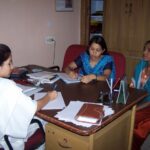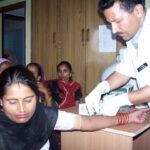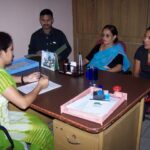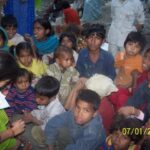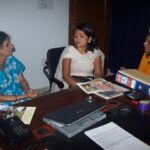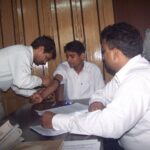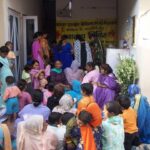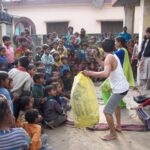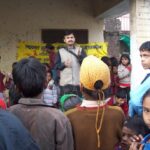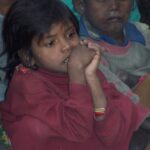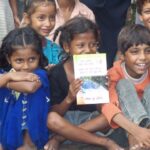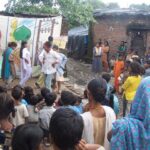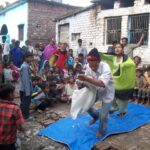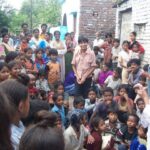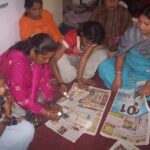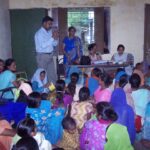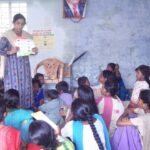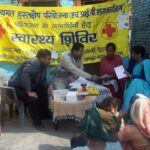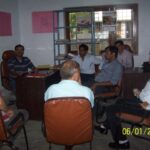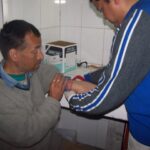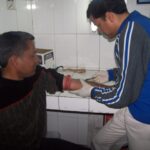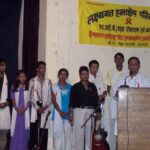TARGETED INTERVENTION PROJECT FOR HIV/AIDS
TARGETED INTERVENTION PROJECT FOR HIV/AIDS FOR FEMALE SEX WORKERS (FSWs), STREET CHILDREN, MEN HAVING SEX WITH MEN (MSM) AND INJECTING DRUG USERS (IDUs) IN DISTRICT DEHRADUN OF UTTARAKHAND
INTRODUCTION AND BACKGROUND OF THE PROJECT
Nestled within the heart of Uttarakhand, India, the targeted intervention project for HIV/AIDS emerges as a beacon of hope in the relentless battle against this formidable adversary. Its purpose, noble and unwavering, is to dismantle the pathways that HIV/AIDS exploits to infiltrate vulnerable populations within the Dehradun district. An orchestra of compassion and strategy, this initiative plays out on the stage of real lives, seeking to harmonize health and dignity. The project’s gaze falls upon those society sometimes overlooks, the female sex workers (FSWs), the street children, the men having sex with men (MSM), and the injecting drug users (IDUs). These individuals, often bearing the weight of social prejudice and economic adversity, are thrust into the crosshairs of vulnerability. It’s a dance of circumstance and complex dynamics, a blend of societal marginalization, economic strife, and behaviour-driven risk factors. In the tapestry of Dehradun’s districts, the threads of HIV/AIDS weave a challenging narrative. Here, the story echoes the national saga, the National AIDS Control Organization (NACO) paints a portrait of a 0.13% prevalence of HIV/AIDS in Uttarakhand in 2019, an incidence seemingly lower than the national average of 0.22%. Yet, in the shadows, certain groups bear a disproportionate burden.
FSWs, MSM, IDUs, and street children grapple with a more formidable prevalence. With a steadfast resolve, the targeted intervention project sets its compass towards these vulnerable populations. It reaches out with a promise, a promise of prevention, testing, and treatment, all enshrined within the embrace of accessible services. This project, however, isn’t confined to physical care; it carries within its heart a torch of awareness. It seeks to illuminate the alleys of risk, where vulnerability lurks, by igniting the fire of knowledge. Safer sexual practices, wiser drug use, these messages are the lanterns guiding these communities towards healthier shores. With every test administered, with every dialogue shared, the project inches closer to its objectives. It’s a pursuit of transformation that extends beyond the medical realm. It’s about fostering an environment where the seeds of resilience can flourish, where health is more than just the absence of disease, where dignity reclaims its rightful place. In the grand tapestry of this initiative, the end goal is clear, to thwart the march of HIV/AIDS, to protect and uplift the marginalized, and to kindle a beacon of health and well-being in the Dehradun district. It’s a symphony of hope, an affirmation that even in the face of adversity, the human spirit can rise, conquer, and rewrite the narratives that threaten to define it.
AIMS AND OBJECTIVES OF THE PROJECT
1. Implement interventions through BCC targeting FSWs, Street Children, MSM, and IDUs in District Dehradun to prevent HIV/AIDS/STD/STI spread; raise awareness and promote healthy behaviours.
2. Deliver innovative BCC initiatives to FSWs, Street Children, IDUs, and MSM for enhancing health-seeking behaviours and responsible decision-making.
3. Enhance awareness, knowledge, and risk perception about HIV and STIs among FSWs, Street Children, IDUs, and MSM; educate about transmission modes, preventive measures, and regular testing.
4. Advocate consistent and correct condom use, including condom negotiating skills, among FSWs, IDUs, and MSM; highlight condoms as effective barriers for HIV/STI prevention.
5. Establish comprehensive care and support services including counselling, testing, and treatment for HIV and STIs, ensuring a safe and supportive environment.
6. Create an enabling environment for easy access to HIV/AIDS prevention, testing, treatment, and support services; remove barriers and promote community support.
7. Develop sustainable options and strategies for program continuity; explore income generation, vocational training, and skill-building for FSWs, IDUs, and MSM.
8. Distribute condoms and safe needles to promote safer practices and reduce HIV and blood-borne infection risk among FSWs, IDUs, and MSM.
COMPONENTS AND ACTIVITIES OF THE PROJECT
1. Execute comprehensive Behaviour Change Communication (BCC) campaigns aimed at enhancing community awareness regarding HIV/AIDS prevention, promoting healthy behaviours, and disseminating effective risk reduction strategies.
2. Provide a range of Sexual Transmitted Infection (STI) support services encompassing counselling, testing, and treatment, with a strong emphasis on early detection and timely medical intervention for the efficient management of STIs.
3. Advocate for consistent and correct condom usage through educational sessions, widespread distribution, and enhanced accessibility, highlighting their pivotal role in preventing both HIV and STIs.
4. Foster an enabling environment by collaborating with relevant stakeholders to address structural barriers, advance supportive policies, and combat instances of stigma and discrimination associated with HIV/AIDS.
5. Activate community engagement through organized meetings, workshops, and awareness campaigns, cultivating a sense of community ownership and fostering active participation in initiatives dedicated to HIV/AIDS prevention and comprehensive care.
TARGET AREA OF THE PROJECT
The project’s focal area of operation was the Dehradun district within the state of Uttarakhand. Its overarching objective was to implement comprehensive HIV/AIDS prevention and control interventions specifically tailored to address the needs of vulnerable populations residing within this region.
TARGET GROUPS AND BENEFICIARIES OF THE PROJECT
The project’s primary focus was directed towards reaching out to vulnerable and high-risk populations with respect to HIV/AIDS within the designated area. This encompassed Female Sex Workers, Street Children, Men who have Sex with Men, and Injecting Drug Users. The project acknowledged the distinctive challenges faced by these groups, underscoring the necessity for customized interventions to efficiently combat the HIV/AIDS epidemic in the region.
FUNDING PARTNER OF THE PROJECT
The Uttarakhand State AIDS Control Society (USACS), Department of Medical, Health & Family Welfare, Government of Uttarakhand, Dehradun provided the funding for the project.
SANCTIONED BUDGET OF THE PROJECT
The USACS sanctioned the project in 2004, and the project continued until 2011. The total budget of the project varied each year and was determined by the targets set for that year. The total budget of the project along with its sanctioned order number and date for each year, is listed below:
| Financial Year | Sanction Order/Work Order/Agreement No. | Date of Sanction Order/Work Order/ Agreement |
Sanctioned Budget of the Project (Amount in Rs.) |
USACS Contribution (Amount in Rs.) |
HIFEED Contribution (Amount in Rs.) |
| 2004-05 | 12P/NP/UASACS/ 2004/3491 | 24.04.2004 | 4,45,692.00 | 4,05,175.00 | 40,517.00 |
| 2005-06 | 12P/NP/UASACS/ 2005/ 5962 | 09.06.2005 | 7,58,450.00 | 6,89,500.00 | 68,950.00 |
| 2006-07 | 12P/NP/UASACS/ 2006-07/9198 | 20.04.2006 | 7,58,450.00 | 6,89,500.00 | 68,950.00 |
| 2007-08 | 12P/NP/UASACS/ TI/2007- 08/13144 | 19.07.2007 | 10,83,473.00 | 9,84,975.00 | 98,498.00 |
| 2008-09 | 12P/NP/USACS/ (TI)/2008-09/ 18961 | 07.07.2008 | 10,83,473.00 | 9,84,975.00 | 98,498.00 |
| 2009-10 | 12P/NP/USACS/ TI/2009-10/4948 | 04.01.2010 | 3,54,801.00 | 3,54,801.00 | – |
| 2010-11 | 12P/NP/USACS/ Grant Award/ 2010-11/1533 | 31.05.2010 | 7,32,280.00 | 7,32,280.00 | – |
| Total | 52,16,619.00 | 48,41,206.00 | 3,75,413.00 |
OUTCOMES AND ACHIEVEMENTS OF THE PROJECT
Outcomes and achievements of the Targeted Intervention Project for HIV/AIDS that have been accomplished after successful implementation of the project are:
1. The targeted groups, including FSWs, Street Children, IDUs, and MSM, have increased their awareness, knowledge, and risk perception about HIV and STIs through successful implementation of the Targeted Intervention Project for HIV/AIDS.
2. Consistent and correct use of condoms, including condom negotiating skills, among FSWs, IDUs, and MSM, has been promoted and accomplished through the project’s efforts.
3. STI support services have effectively diagnosed and treated STIs for the targeted groups, thanks to the project’s successful implementation.
4. Access to preventive measures has been increased by distributing free condoms to the targeted groups through the project.
5. An enabling environment that ensures easy access to services and assists in community development has been created through the project.
6. Partnerships with local stakeholders, such as government agencies, NGOs, and community-based organizations, have been built to support the project’s objectives.
7. Advocacy efforts have been made to promote policies and laws that support the rights and needs of the targeted groups, contributing to the project’s success.
8. Communities have been mobilized to actively participate in HIV/AIDS prevention and control efforts through the project’s efforts.
9. Stigma and discrimination against FSWs, Street Children, IDUs, and MSM have been reduced through the project’s efforts.
10. The project has empowered the targeted groups to take control of their health and adopt healthier lifestyles, which has ultimately contributed to reducing the spread of HIV/AIDS/STD/STI infections in Dehradun district and improving the overall health and wellbeing of the community.




